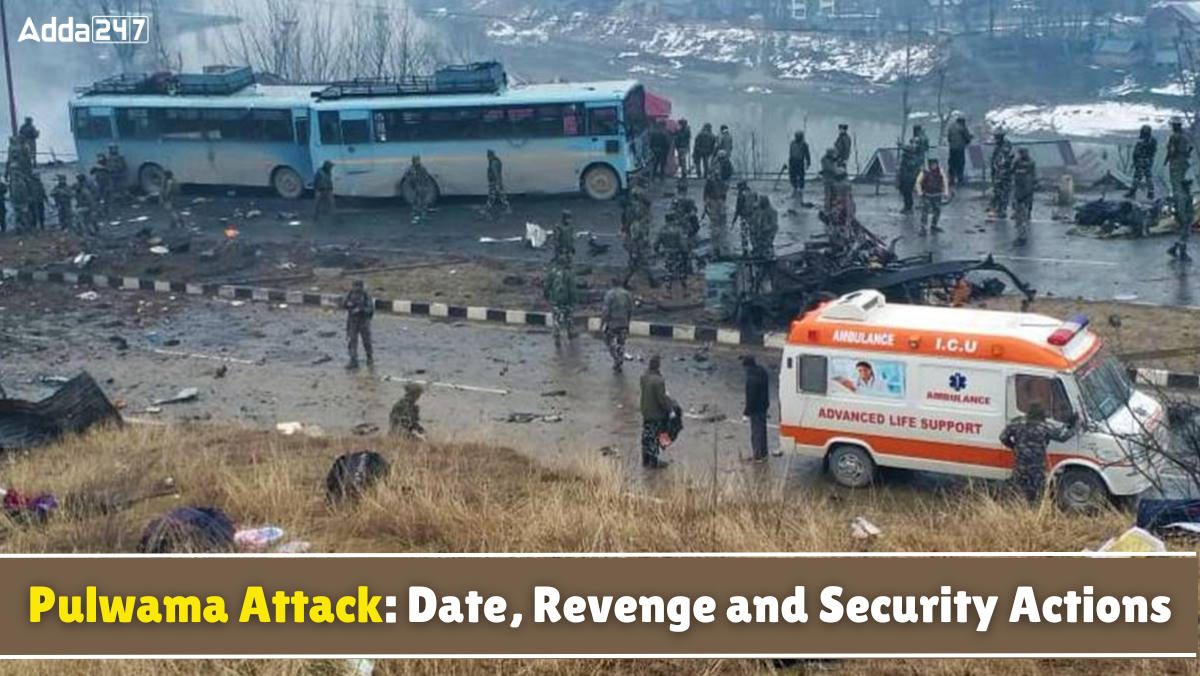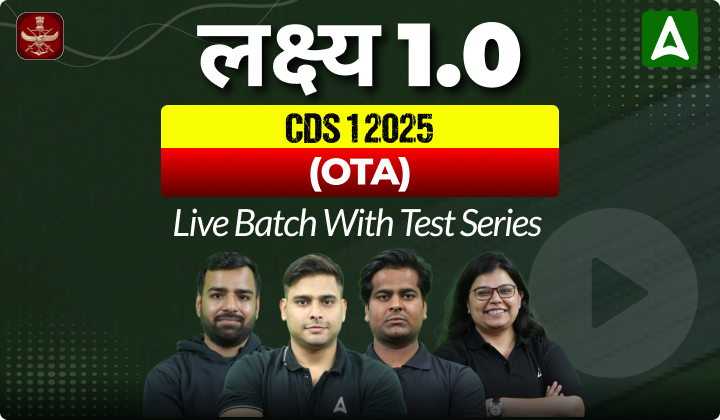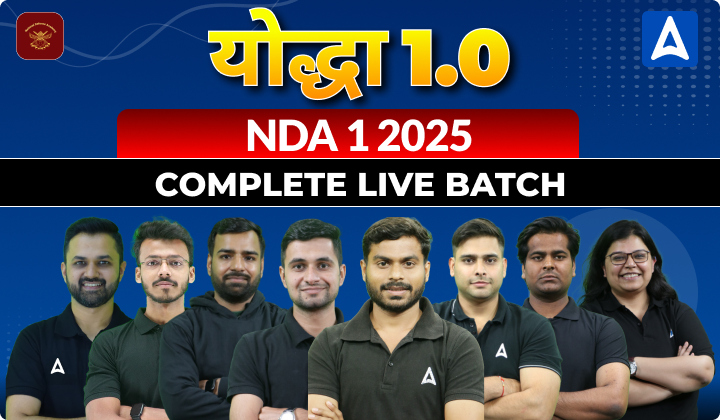The Pulwama attack was one of the deadliest terror attacks on Indian security forces on 14 February 2019 in which 40 Central Reserve Police Force (CRPF) personnel were martyred. The attack, in which a vehicle laden with explosives rammed into a CRPF convoy, was carried out by Pakistan-based terror group Jaish-e-Mohammed. Following this tragic incident, 14 February is remembered as a day of mourning in the country. The Pulwama attack sparked a wave of deep outrage in India and resulted in India taking strict retaliatory action through the Balakot airstrike. This article is based on all these topics where you will be given information about Pulwama Attack, Date, Latest News and Revenge.
Pulwama Attack
On 14 February 2019, a suicide attack took place on a convoy of the Indian paramilitary force Central Reserve Police Force (CRPF) in Pulwama district of Jammu and Kashmir. 40 soldiers were martyred in this attack. A vehicle loaded with explosives hit the convoy of the soldiers while they were heading towards Srinagar. The attack led to a wave of grief across the country, and it was considered one of the deadliest attacks on Indian security forces. The Pulwama attack rekindled the debate on terrorism and security issues in the country, and is seen as a historical turning point.
National Grief and Security Actions
After the Pulwama attack, tribute meetings are held across the country every year on 14 February in memory of the martyrs. This day is remembered as “Black Day”. The attack not only shook the morale of the security forces but also united the citizens of the country against terrorism. After this, the government took several important steps to strengthen the security arrangements. Border security was increased, action against terrorists was intensified, and security forces were equipped with state-of-the-art equipment.
Responsibility for the Attack and Retaliation
Pakistan-based terrorist organization Jaish-e-Mohammed claimed responsibility for the attack. Soon after, India took a tough stand at the political and diplomatic level. On 26 February 2019, the Indian Air Force carried out an airstrike on Jaish-e-Mohammed terrorist camps located in Balakot, Pakistan, which was called the “Balakot Air Strike”. The strike was seen as a retaliation to the Pulwama attack and became a symbol of India’s aggressive policy against terrorism. The action was also discussed internationally and reflected the strategic capability of India’s army.
How Intense Was Pulwama Attack?
This is the worst terror strike in the state since the Uri attack in 2016. The explosive used in the attack was so strong that the blast was heard from 10-12 km away, including some parts of Srinagar adjoining the Pulwama district. This was the first suicide car bomb strike in Kashmir since the 2001 attack on the Jammu and Kashmir Legislative Assembly that left 41 persons, including three suicide attackers, dead.
At least 37 CRPF personnel have been martyred in a terrorist attack on a convoy of the security force. More than 2,500 Central Reserve Police Force personnel, many of them returning from leave to rejoin duty in the Valley, were travelling in the convoy of 78 vehicles when they were ambushed on the Srinagar-Jammu highway at Latoomode in Awantipora in south Kashmir around 3.15 pm.
The Pakistan-based Jaish-e-Mohammed terror group has claimed responsibility for the attack that took place about 20 km from Srinagar, officials said. Police identified the suicide bomber as Adil Ahmed, who officials said joined the Jaish in 2018.
Pulwama Attack Revenge
In response to the Pulwama attack, India withdrew the Most Favoured Nation status previously granted to Pakistan. The Pakistani High Commissioner to India was also summoned for discussions. In the early morning, Indian fighter jets struck terrorist hideouts inside Pakistan and successfully destroyed a Jaish-e-Mohammed training camp. This operation was a strong and timely response to the suicide attack that resulted in the death of 40 CRPF personnel on February 14. The bravery shown by the Indian Air Force in carrying out this operation, which involved penetrating deep into enemy territory and returning safely, is commendable, as it is a challenging task that requires immense skill and courage.
National mourning and security measures
After the Pulwama attack, tribute meetings are held across the country every year on 14 February in memory of the martyrs. This day is remembered as “Black Day”. The attack not only shook the morale of the security forces but also united the citizens of the country against terrorism. After this, the government took several important steps to strengthen the security arrangements. Border security was increased, action against terrorists was intensified, and security forces were equipped with state-of-the-art equipment.
Pulwama Attack: Our Soldiers Our Pride
Our Soldiers are our pride. They not only secure our borders but gives selfless service by serving our nation in internal problems also, keep our country’s flag high in sports also. They also give their service at the international level by serving mankind worldwide. Now, as a law-abiding citizen of this nation, it is our duty to appreciate and understand the emotional and physical balance of responsibilities they put on the stake, be it of their families or for the whole nation.
Let us take out some time from our busy schedule and think of the supreme sacrifice made by our soldiers who are serving their nation under unimaginable circumstances so that we can live peacefully.
Oh fellow Indians, we are lucky and blessed that we have Indian Military!!
Dead Upon the Field of glory, Hero Fit For Song and Story !!!
May Your Soul, Rest in Power
For more such interesting information, stay tuned with DefenceAdda.




 Indian Navy SSR MR Recruitment 2025, App...
Indian Navy SSR MR Recruitment 2025, App...
 CDS 1 Exam Date 2025 Out, Check Exam Sch...
CDS 1 Exam Date 2025 Out, Check Exam Sch...
 AFCAT Exam Cut Off 2025 Out, Check Previ...
AFCAT Exam Cut Off 2025 Out, Check Previ...












